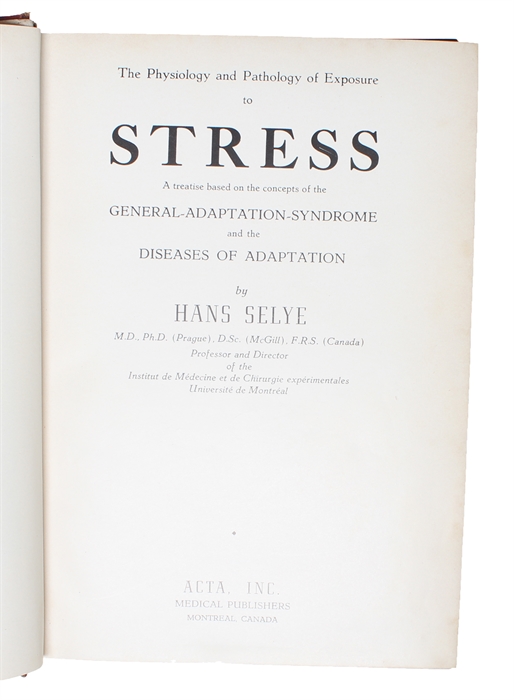SELYE, HANS
The Physiology and Pathology of Exposure to Stress.
Montreal, Acta Inc., 1950. Royal8vo. In the original full red cloth. Hindges a bit weak and light wear to extremities. With dedication (not from the author) to front free end paper. XX, 822, (2), 203 pp.
First edition of Selye's landmark work on stress in which he presented his General Adaptation Syndrome (GAS), a 3-stage set of physiological processes which prepare the body for danger so that we ready to stand a better chance of surviving it compared to if we remained passively relaxed when faced with a threat. Hans Selye was the first scientist to single out these side effects and to identify them collectively as being the result of 'stress', today he is is widely acknowledged as "the father of the stress field".
Selye himself acknowledged that stress impacts each individual differently (Selye, 1950). What one person considers to be a severely stressful situation, another person may experience as only mildly distressing. Physiologists define stress as how the body reacts to a stressor, real or imagined, a stimulus that causes stress. Acute stressors affect an organism in the short term; chronic stressors over the longer term. The general adaptation syndrome (GAS), developed by Hans Selye, is a profile of how organisms respond to stress; GAS is characterized by three phases: a nonspecific mobilization phase, which promotes sympathetic nervous system activity; a resistance phase, during which the organism makes.
Selye considered "Stress in heath and disease is medically, sociologically, and philosophically the most meaningful subject for humanity that I can think of".
Order-nr.: 54387


